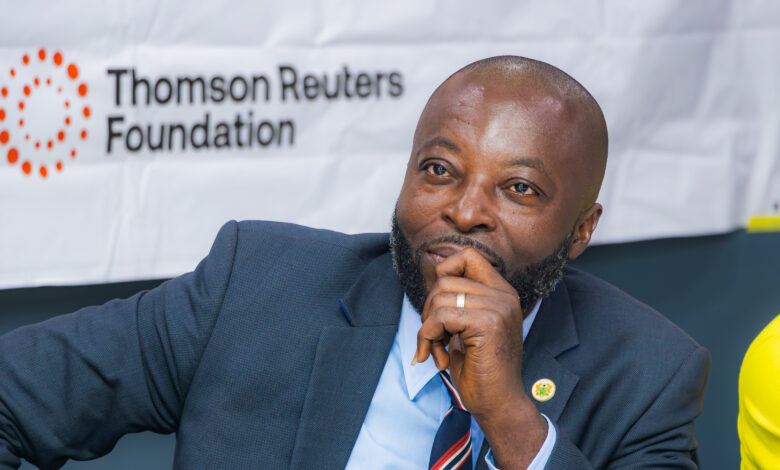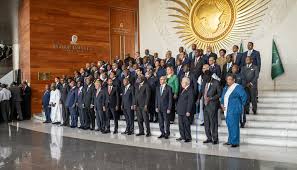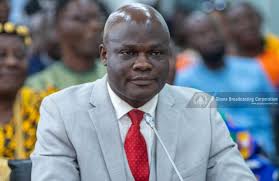Ghana’s increasing corruption, dishonesty, loss of integrity; Repels of celebrating undisclosed wealth
Ghana's increasing corruption, dishonesty, loss of integrity; Repels of celebrating undisclosed wealth

Illicit Financial Flows (IFFs), corruption and other social vices has, unfortunately, become a pervasive culture in Ghanaian society, a phenomenon linked to the celebration of undisclosed wealth.
Ghana loses approximately US$ 3 billion each year to corruption, depriving the nation of critical resources needed for development.
The “money rule syndrome“is indeed playing a significant role in the beginning of illicit financial flows (IFFs). IFFs refer to the illegal movement of money across borders, often involving corruption, tax evasion, and other financial crimes.
Today, in Ghana, wealth (riches) is seen as a symbol of success and social status, hence most people are bent on doing anything without blinking an eye to get it overnight.
According to the latest government census in 2021, approximately 71 percent of the Ghanaian population is Christian, 20 percent Muslim, three (3) percent say they adhere to indigenous or animistic religious beliefs, and six (6) percent belong to other religious groups or profess no religious beliefs.
These statistics beat one’s imagination as to why a country like Ghana, full of religious people, are neck deep in the acts of corruption and other social vices that have derailed its progress.
The era where parents, family heads, opinion leaders and chiefs questions a family or a member of a community’s wealth or source of income because when any member of a family or the community is caught in illicit activities, the person brings disgrace not only upon himself but upon the entire family or community has long been diminished.
Ghana was once a land of honour, where a man’s word was his bond, and the fear of disgrace kept even the most ambitious rogue in check.
Wealth earned legally or illegally have become the yardstick for the selection people into leadership and this is happening even in the church. Wisdom, intelligence, honesty, integrity, uprightness and morality has been thrown to the dogs.
Today a Junior High School graduate who has never worked before or known have won lottery goes home with a car, and his or her parents will not ask for the source of the car but will rather go to church to thanks God for giving the son/daughter car. The pastor will also not question the source but pray for them. Which sane society does that?
In Ghana today, looters no longer hide in the shadows. They dance in the marketplace, pockets full, while everyone looks the other way. They ride in luxury cars, live in big mansions, and move with bodyguards, grace social events to splash money, make grand donations, and they are the people society revered.
In a country where integrity, honesty, and social accountability still hold value, the corruption scandals witnessed in the past and what has been revealed now, the nation would have been set ablaze, and the culprits would have been roasted by now.
But hey, nothing seems to be happening. In the words of Professor Stephen Kweku Asare, with all the damming revelations, “Not a single feather ruffled, not a single calabash shattered in protest. Even the goats in the marketplace chewed their cud in silence. The people simply shrugged, as if someone had merely announced that the sun would rise tomorrow.
It is said that when a dead rat is left too long under the sun, the smell of rot becomes normal. This is what looting has become in Umuofia—a stench so constant that people no longer notice it.”
The very institutions that are to ensure and uphold the integrity and sanity of the society are the ones alleged to have been indulging in such bizarre acts. Contractors, Police, Customs officers, Civil servants, Judicial officers…. are habitually involved…Even the preacher men too.
I’m not sure there has lack of institutions meant to fight corruption on any day in our history as a country. There are agencies and officials dedicated to tracking state resources, reclaiming missing ones, monitoring groups and individuals to live upright and bringing before the law those who flout the law (‘criminals’).
Yet we hear and see alleged “criminal” groups and individuals emerges, these very institutions remain silent. If those who swore an oath to protect the country’s resources from looting and plundering are the deeply involved in the loot then lack of even development, and inequality will live with us for good.
Consequences of Celebrating Undisclosed Wealth
Celebrating undisclosed wealth promote corruption and illicit activities which turned to undermine the economic development drive of the nation. This is because the country’s scarce resources diverted away from legitimate economic activities.
Again negative effect for celebrating undisclosed wealth is the fast eroding of trust in institutions by the citizenry and also perpetuate inequality, as the act often benefits a small group or individual at the expense of the broader population.
How do we change this negative narrative?
To change this negative narrative, for the betterment of country and her future generations, both the ruling class and the citizenry should come together to promote a culture of transparency and accountability in all its dealings to encourage transparency in wealth creation and ownership.
Another key element eliminate the canker is institutional strengthen. The government of the day need to strengthen institutions such as tax authorities and law enforcement, to detect and prevent illicit activities.
As a people we need to at all times encourage civic engagement, and public scrutiny of wealth creation and ownership to promote accountability, as well as increase public education and raise awareness about the risks associated with celebrating undisclosed wealth.
Until citizens are trained to be honest (not religious), the mindset about getting rich overnight will continue to fuel corruption and other illicit activities which derail the real progress of the country.
Today the least corrupt countries in the world have populations that are not religious but have citizens that are ethical by behavior… Law abiding and honest.
Until there is a behavior change in society, the fight against corruption and other illicit activities is already a lost battle.
By acknowledging the risks associated with celebrating unidentified wealth, we can work towards breaking the cycle of IFFs in Africa, especially in Ghana, and promoting a more transparent and equitable economic environment.

The Author




